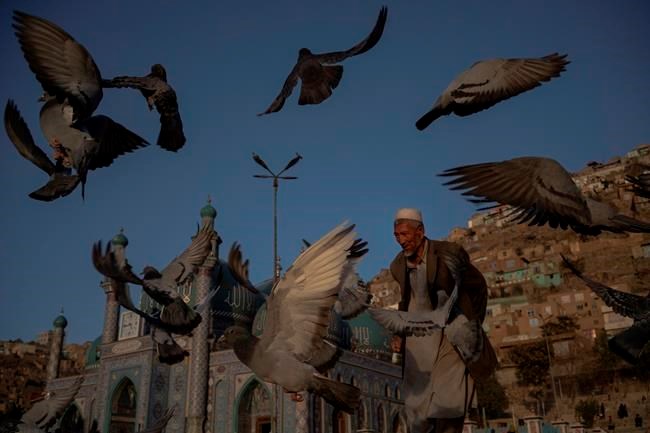OTTAWA — Canada and its international partners need to do more to strengthen Afghanistan's neighbours if they want to help vulnerable people flee the Taliban-controlled country, says a top United Nations official.
Kelly Clements, the deputy UN High Commissioner for Refugees, told The Canadian Press that Iran and Pakistan lack the funding to deal with the influx of Afghans who have tried to escape the country since the Taliban militia seized control in mid-August.
Many ex-interpreters and their families face retaliation from the Taliban because of their support of the NATO military mission that Canada, the United States and numerous other nations participated in during the last two decades.
Other vulnerable Afghans, women especially, face a dark future under the Taliban and are living in safe houses and hoping to find escape routes.
Canada has agreed to resettle as many as 40,000 Afghans but non-governmental organizations say funds are drying up for safe houses in Afghanistan, which could leave as many as 1,700 people in harm's way.
Clements had no comment on safe houses but said Canada's commitment to resettle Afghans is setting a strong example internationally. However, she said much more needs to be done to bolster the capacity of Iran and Pakistan to accommodate those who manage to escape the Taliban.
"The borders have been exceptionally tight," Clements said in an interview this week.
Even before the Taliban takeover, Pakistan had only half the funding it needed to support refugees while Iran had received only a quarter, she said.
"They really feel like the international community has not stood sufficiently with them."
The UN refugee agency is working hard to help displaced people within Afghanistan, as record numbers fled the countryside for cities during the Taliban’s march to victory this past summer.
That has created an unprecedented food and nutrition crisis. Other UN agencies predicted earlier this week that more than half of Afghanistan's population — more than 22 million — faces dire hunger in the coming months.
"There can be all kinds of reasons for people to need to leave. But we're trying to assist them where they are," said Clements.
"We're present in every province and two-thirds of the districts and have a number of partners with which we're working."
Despite the Taliban takeover, the UN refugee agency has been able to maintain access to vulnerable populations, she said.
"We have had long-standing support at an operational and a local level in those areas that have been traditionally controlled by Taliban. So that engagement is not new."
For those who can make a run for it, they face tightly controlled border crossings where documentation, visas, passports and other travel documents are needed — but are often in short supply.
"So, we would obviously call on the neighbours to allow those people to be able to seek safety within their countries as well," she said.
Canada's commitment to resettle Afghans appears to be more focused on those who are already out of the country. Clements said the pledge is highly regarded internationally.
"In the grand scheme of things, it's a very generous announcement. But even more than that is required. And we've seen others step forward as well, which is, I think, because of Canada's leadership."
Prior to the current crisis in Afghanistan, the UN ranked the country third in the number of refugees at 2.6 million, behind Venezuela at four million and Syria at 6.7 million.
Clements said Canada's track record on resettling new arrivals will serve it well as it welcomes more Afghans.
She said community sponsorships and other programs that the UN has funded have shown good success in giving refugees "the tools and the support so that they can start earning for themselves and support their families more quickly and give back to Canada and give back to Canadian communities."
This report by The Canadian Press was first published Oct. 27, 2021.
Mike Blanchfield, The Canadian Press



